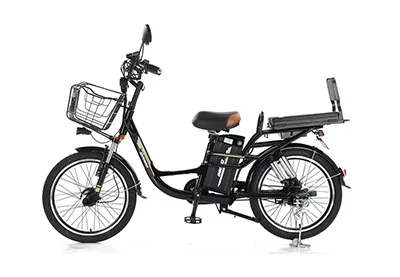
- Afrikaans
- Albanian
- Amharic
- Arabic
- Armenian
- Azerbaijani
- Basque
- Belarusian
- Bengali
- Bosnian
- Bulgarian
- Catalan
- Cebuano
- Corsican
- Croatian
- Czech
- Danish
- Dutch
- English
- Esperanto
- Estonian
- Finnish
- French
- Frisian
- Galician
- Georgian
- German
- Greek
- Gujarati
- Haitian Creole
- hausa
- hawaiian
- Hebrew
- Hindi
- Miao
- Hungarian
- Icelandic
- igbo
- Indonesian
- irish
- Italian
- Japanese
- Javanese
- Kannada
- kazakh
- Khmer
- Rwandese
- Korean
- Kurdish
- Kyrgyz
- Lao
- Latin
- Latvian
- Lithuanian
- Luxembourgish
- Macedonian
- Malgashi
- Malay
- Malayalam
- Maltese
- Maori
- Marathi
- Mongolian
- Myanmar
- Nepali
- Norwegian
- Norwegian
- Occitan
- Pashto
- Persian
- Polish
- Portuguese
- Punjabi
- Romanian
- Russian
- Samoan
- Scottish Gaelic
- Serbian
- Sesotho
- Shona
- Sindhi
- Sinhala
- Slovak
- Slovenian
- Somali
- Spanish
- Sundanese
- Swahili
- Swedish
- Tagalog
- Tajik
- Tamil
- Tatar
- Telugu
- Thai
- Turkish
- Turkmen
- Ukrainian
- Urdu
- Uighur
- Uzbek
- Vietnamese
- Welsh
- Bantu
- Yiddish
- Yoruba
- Zulu
Nov . 15, 2024 18:55 Back to list
electric bicycle
The Rise of Electric Bicycles A Sustainable Future on Two Wheels
In recent years, electric bicycles, commonly known as e-bikes, have surged in popularity, transforming the way we think about transportation
. With the challenges of urban congestion, environmental concerns, and the need for efficient commuting solutions, e-bikes present a compelling alternative to traditional forms of travel. This article explores the benefits, challenges, and future potential of electric bicycles.One of the primary advantages of e-bikes is their ecological impact. As cities grapple with air pollution and the effects of climate change, replacing gas-guzzling vehicles with e-bikes can significantly reduce carbon emissions. E-bikes produce zero emissions during operation, and many models are powered by rechargeable lithium-ion batteries, which can be recharged from renewable energy sources. This shift can contribute to cleaner air and a healthier urban environment, making e-bikes an appealing option for environmentally conscious commuters.
Moreover, e-bikes offer an economical alternative to cars and public transportation. With rising fuel prices and urban living expenses, e-bikes provide a cost-effective solution for daily commutes. The initial cost of purchasing an e-bike may seem high, but when factoring in fuel savings, maintenance, and parking costs, e-bikes become an attractive financial option. Additionally, many cities are investing in bike lane infrastructure and offering incentives for e-bike purchases, further supporting their use as a primary means of transport.
electric bicycle

E-bikes also promote a healthier lifestyle. While they provide an electric boost to assist with pedaling, riders still engage in physical activity, which can improve cardiovascular health and overall fitness. For individuals who may find traditional biking too strenuous due to physical limitations or hilly terrain, e-bikes offer a manageable way to integrate exercise into their daily routines. Studies have shown that e-bike riders tend to cycle more often and over longer distances compared to those on conventional bikes, creating a healthier population overall.
However, the rise of e-bikes does not come without challenges. Safety concerns are paramount, as e-bikes can reach higher speeds than traditional bicycles. This necessitates the need for better traffic regulations, dedicated bike lanes, and enhanced rider education. Additionally, the variety of e-bike models can lead to confusion regarding legal classifications and where they are allowed to operate.
Looking ahead, the future of electric bicycles seems promising. Technological advancements continue to improve battery life, charging times, and overall performance. As manufacturers innovate, we can expect lighter, more efficient, and more affordable e-bikes to flood the market. The potential for integration with smart technology, such as GPS and fitness tracking, further enhances the appeal of e-bikes for tech-savvy consumers.
In conclusion, electric bicycles are more than just a trendy transportation option; they represent a shift towards sustainable urban mobility. By reducing carbon footprints, promoting healthier lifestyles, and providing economic benefits, e-bikes have the potential to revolutionize how we navigate our cities. As we continue to face environmental and societal challenges, embracing electric bicycles may be a crucial step toward a more sustainable future.
-
The Ultimate Kids' Four-Wheeler Experience
NewsJul.09,2025
-
The Ultimate Guide to Mountain Bikes: Gear Up for Your Ride
NewsJul.09,2025
-
The New Age of Cycling: Electric Bikes for Every Rider
NewsJul.09,2025
-
The Best Kids Bicycles: Ride in Style and Safety
NewsJul.09,2025
-
The Best 3-Wheel Scooters for Kids: Fun, Safety, and Adventure
NewsJul.09,2025
-
Revolutionize Your Ride: Affordable Electric Bikes
NewsJul.09,2025
-
Finding the Perfect Mountain Bike for Every Rider
NewsJul.09,2025



